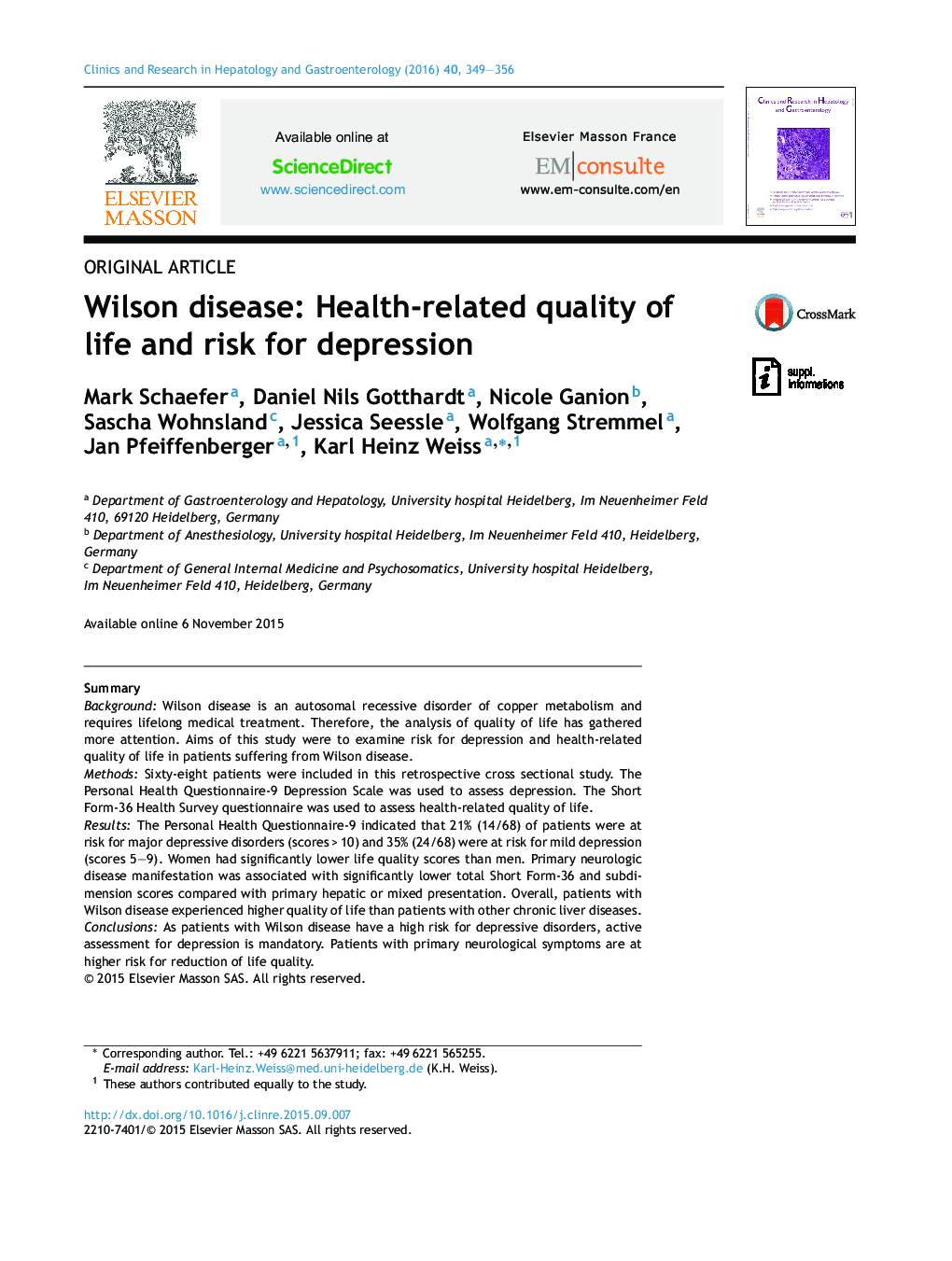| Article ID | Journal | Published Year | Pages | File Type |
|---|---|---|---|---|
| 3286008 | Clinics and Research in Hepatology and Gastroenterology | 2016 | 8 Pages |
SummaryBackgroundWilson disease is an autosomal recessive disorder of copper metabolism and requires lifelong medical treatment. Therefore, the analysis of quality of life has gathered more attention. Aims of this study were to examine risk for depression and health-related quality of life in patients suffering from Wilson disease.MethodsSixty-eight patients were included in this retrospective cross sectional study. The Personal Health Questionnaire-9 Depression Scale was used to assess depression. The Short Form-36 Health Survey questionnaire was used to assess health-related quality of life.ResultsThe Personal Health Questionnaire-9 indicated that 21% (14/68) of patients were at risk for major depressive disorders (scores > 10) and 35% (24/68) were at risk for mild depression (scores 5–9). Women had significantly lower life quality scores than men. Primary neurologic disease manifestation was associated with significantly lower total Short Form-36 and subdimension scores compared with primary hepatic or mixed presentation. Overall, patients with Wilson disease experienced higher quality of life than patients with other chronic liver diseases.ConclusionsAs patients with Wilson disease have a high risk for depressive disorders, active assessment for depression is mandatory. Patients with primary neurological symptoms are at higher risk for reduction of life quality.
